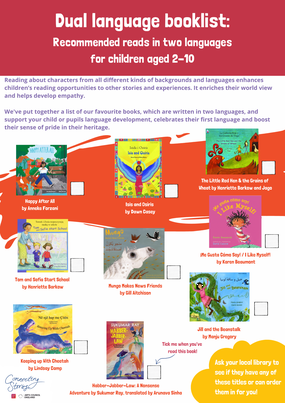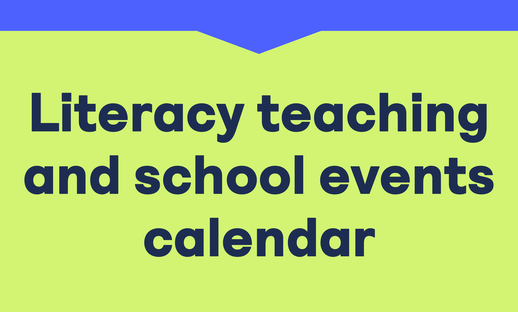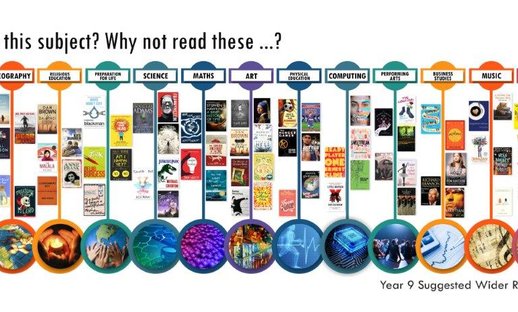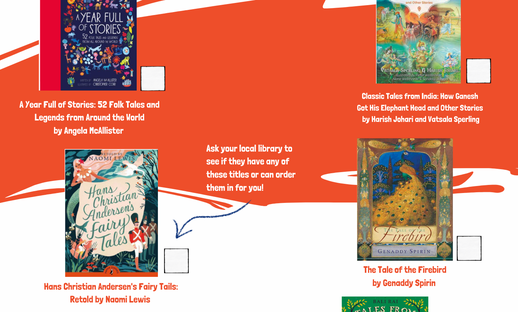
Dual language books are a powerful way to help children’s language development.
As they read the story in two languages, it encourages them to see similarities and differences between words and syntax across the languages, and can help build their vocabulary in both. For children who speak only one language, dual language books can introduce them to a range of languages they may not have come across before.
At home: In the home environment, these books help parents read with children in their home language, boosting.confidence in storytelling, and embedding reading as an enjoyable family activity.
Dual language books can also help both parents and children feel included and represented in stories.
In school: In the classroom or school library, access to dual language books helps multilingual pupils feel that their home language is valued. These books can also open up class discussion about other cultures and languages.
Our dual language booklist
On this page you can access an introductory list of titles for children aged two to ten, featuring Arabic, Slovakian, Polish and Chinese. This list aims to help you and your children jump in to the world of dual language books that can contribute to diversifying your book stock, and teaching your class about other cultures. Download a copy from the available files section of this page.
You can discover many more dual language books through your local library or via your schools library service.
Storytelling Month
We're celebrating a whole month of storytelling and multilingualism through our Connecting Stories project. Beginning in National Storytelling Week (30 January to 6 February) and running through to International Mother Language Day (21 February), we have activities and resources to celebrate the richness of different stories, experiences and cultures. These include scrapbooks for children to complete, exploring their own identities and creative ideas. Visit our Storytelling Month page to learn more.
Research on multilingual reading
Read our research on Multilingual young people’s reading which found that a higher percentage of multilingual children reported enjoying reading than their monolingual peers, but also that 40% of these young people would like their multilingual skills to be more recognised in their school
Download file
You might also be interested in
-
Free
Supporting schools and early years settings with literacy teaching resources to help enrich your lessons linking to literacy moments and awareness days throughout the academic year.View details about Literacy teaching and school events calendar 2025-2026 -
Premium
We share the experience of how whole-school reading posters succeeded in getting staff and students talking at Eggbuckland Community College, with examples to inspire you.View details about Whole-school reading recommendations posters -
Free
Delve in to storytelling traditions with our folktales and fables booklists.View details about Fables and folktales booklists


